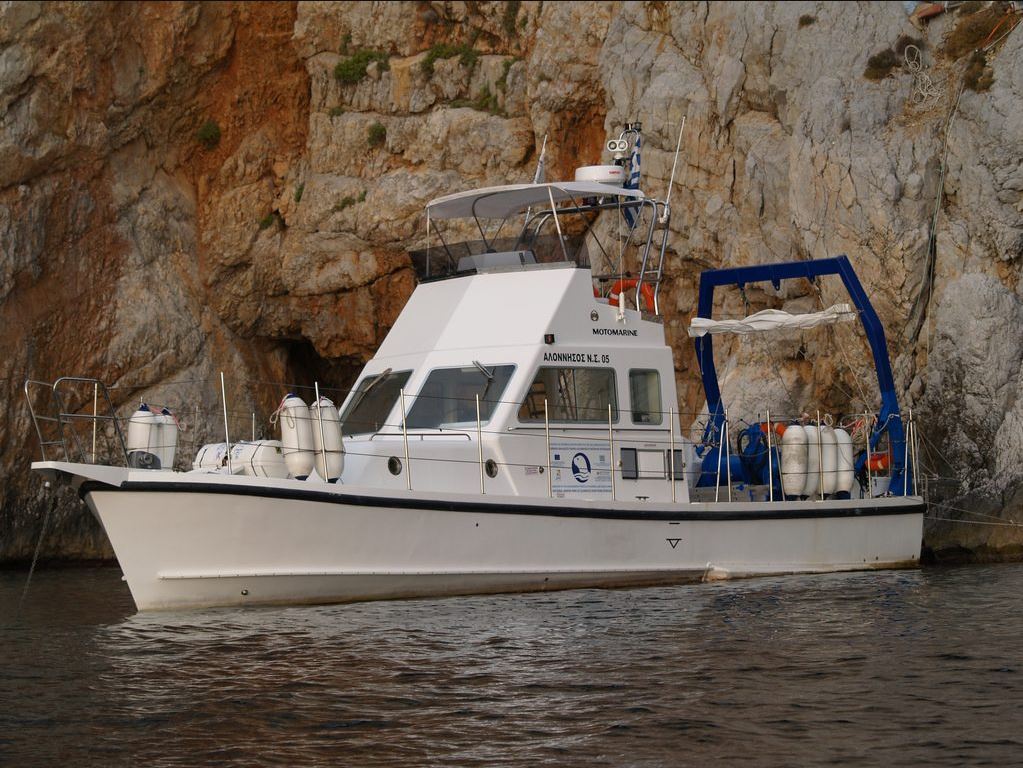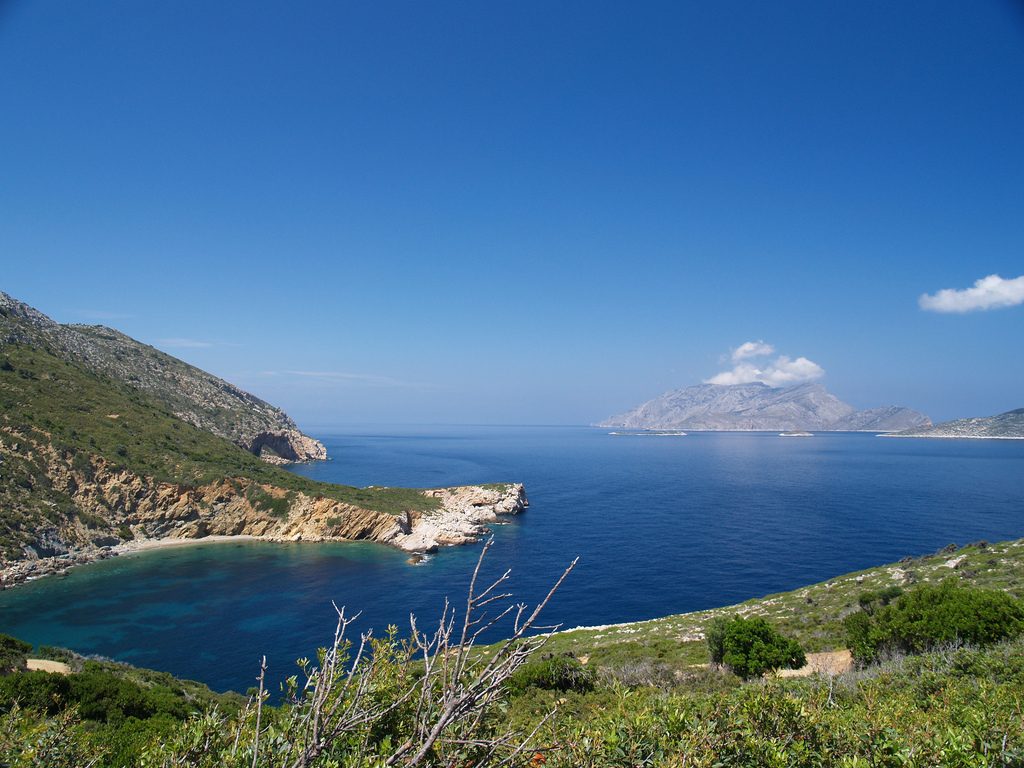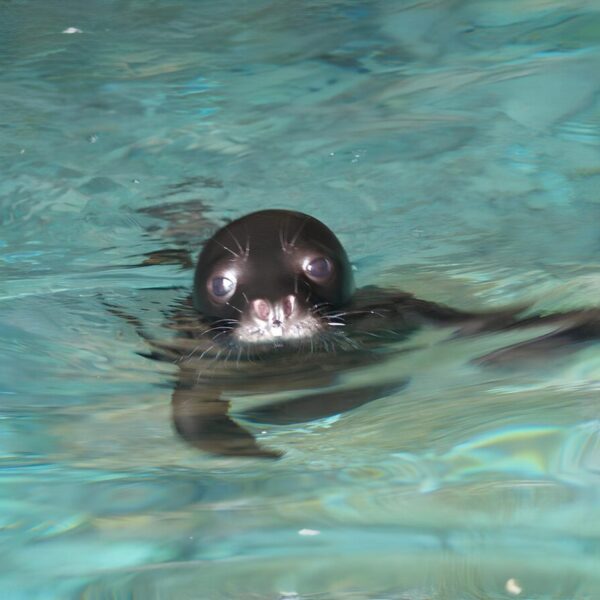The Mediterranean monk seal (Monachus monachus), once widespread along all Mediterranean coasts, is now considered the most endangered species in Europe. Declining fish stocks, fishing nets, tourism development, and sea pollution are the main reasons for this decline. The recognition of the Northern Sporades Islands region as a protected area and the creation of the Alonissos Marine National Park are important steps towards protecting the species and its habitats.
The Alonissos Marine Park covers an area of approximately 2,220 square kilometers in the Northern Sporades Islands. It is the largest marine protected area with a mixed surface (including both sea and land) in the Mediterranean. Its aim is to protect the endangered monk seal species. The current population of monk seals in the Alonissos park is estimated at 60 individuals. The average number of births is nine individuals per year, a figure considered adequate by experts for the conservation of the species.
"The Alonissos Marine Park is the appropriate ecosystem for the conservation of the Mediterranean monk seal. There, the seals can feed and reproduce, as there are numerous sea caves that provide the ideal environment for them," says Ioannis D. Mitsopoulos, General Director of the Organization for the Environment and Climate Change (OPECAC) which manages the Marine Park.
A species protection program
For the protection of the monk seal in certain parts of the marine park, a controlled fishing ban has been implemented, significantly increasing the stocks of fish that make up its food. In addition, the few fishermen in the permitted park areas are required to use special nets that do not harm the animals. "We do this on one hand to protect the seal from injuries and sometimes death, and on the other hand to reduce the risk of net destruction. Sometimes seals damage fishing tools, which we do not want. Our goal is to make the beings of biodiversity coexist, without threatening either of them," Ioannis D. Mitsopoulos explains.
Since the creation of the Park and with Joint Ministerial Decision 23537/2003, special regulations by zone and protective measures have been put in place. This concerns fishing, farming, agriculture, hunting, approach, anchoring, infrastructure, transportation, and other professional activities surrounding the protection of the Mediterranean monk seal. Additionally, the islet of Piperi, which is part of the Park and hosts the most important breeding refuges, is subject to a strict protection regime, where only scientific research and management actions are allowed.

How the monk seal helped the local community of the island
As Ioannis D. Mitsopoulos explains, besides the fact that the Alonissos Marine Park significantly contributes to the preservation of the Mediterranean monk seal, people from all over the world come to the island solely to see the species up close. "This area was created to protect the species. Now, the island has become a point of reference for nature lovers worldwide. Previously, it had almost no visitors. Now there is quality tourism that respects the environment and provides the residents of Alonissos with an unprecedented income. They find work more easily and do not leave for big cities, as is the case on various Greek islands. It is important that the young people do not leave and do not abandon the islands," Mr. Mitsopoulos states. In Alonissos, the majority of the residents are fishermen. The global visibility gained by the marine park thanks to the monk seal has sometimes allowed them to convert their boats into tourist ships.
If the marine park was primarily created to protect the Mediterranean monk seal, it also houses large colonies of seabirds, very rare species of reptiles, invertebrates, as well as endemic species including several native plants such as Campanula reiseri, Campanula rechingeri, Linum gyaricum, and Arenaria phitosiana. A whole fauna and flora that benefits from this protected area to thrive!

